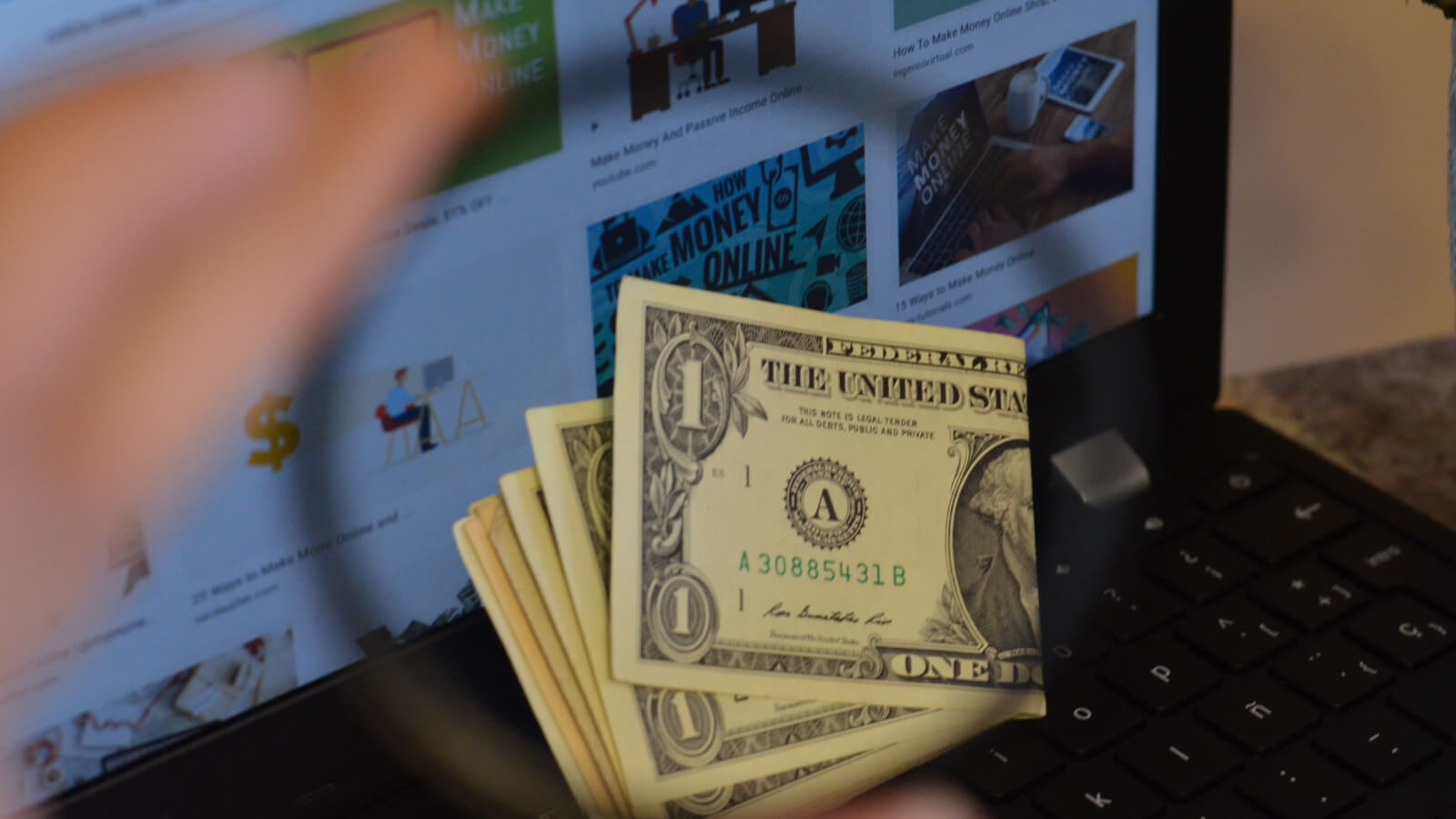It doesn’t take a genius to realize that the economy’s pretty shaky at the moment, and 2024 looks like it’ll bring some financial problems our way. But don’t worry because there are some things you can do to prepare. Here are 25 ways that’ll help your finances sit pretty when things get tight, or at least sitting prettier.
Fix Your Budget

The first thing to do is to dust off that budget. Take a good look at where your cash is going each month and whether or not you can afford to cut back a little. Could you maybe skip that fancy coffee a few times a week? Or maybe try eating instead of dining out? Even small changes can add up to big savings, especially when things get tight.
Increase Your Emergency Fund

Your emergency fund is a safety net for your finances, and it’ll handle any bumps without a sweat. Try to save at least three to six months’ worth of expenses so you’ll have enough to avoid debt if any unexpected expenses pop up. Start small, if you need to, and then build it up over time because every little helps.
Reduce Your Debts

Debt is always a drag, especially when money’s tight. You should try to pay off any high-interest debts whenever you can so you can free up some of your monthly income. This way, you’re not just handing it to the credit card companies, and you’ll have more freedom to use your money for things you actually enjoy.
Check Your Credit

Of course, if you can’t pay off your debt completely, the next best thing is to keep an eye on your credit score. You don’t want anything fishy to bring your score down because good credit can open doors for you, especially if you’re trying to solve some financial problems. It’ll also keep you in control of your finances so you’re always prepared for what’s ahead.
Switch Up Your Investments

If you’ve got all your money in stocks, then you might want to spread it out a bit. Diversifying your investments will help you weather the storm better, so try mixing things up with some bonds or real estate. After all, if one of them goes down, you’ll at least have some others to rely on when the going gets tough/
Brush Up Your Skills

The job market is never steady during a recession, so it’s a good idea to improve your resume before that happens. You might want to take an online course or learn some new software to keep your head in the game and perhaps even get a better position. Plus, new skills could mean new job opportunities that you haven’t thought about before.
Health Insurance

If you get health insurance through your job, you need to put a plan in place for what to do if you lose your position. Check when you can get through the Affordable Care Act or perhaps extend your current coverage through COBRA. This way, you’ll be able to stay covered, no matter what life throws at you.
Fix Up Your Home

You’ll need to keep your home in good condition if you want to avoid any costly surprises down the line. Doing regular check-ups can save you quite a bit of cash by solving issues early, and it can even make your home more energy-efficient, which is always good for the wallet. If you’re proactive enough, you’ll be able to avoid any high repair costs during a recession,
Rethink Your Retirement

It’s never too early to check out your retirement accounts and see what’s going on. After all, you don’t want to be too risky or too cautious with them. Make sure you adjust your investments to fit how your life is going at the moment, as it’ll keep your savings growing at a pace that makes sense for how close you are to retiring,
Stockpile Essentials

Why not grab a few extra cans or a bulk pack of toilet paper when it’s on sale? Stocking up on essentials when prices are low can save you a huge headache later, both financially and physically. Plus, it’ll definitely mean less stress during hard times, as you’ll always have a supply of the basics, no matter how the economy’s doing.
Get a Side Hustle

A little extra cash flow never hurt anyone, so maybe it’s time to turn one of your hobbies into something more or pick up some freelance positions. You’ll get an extra income stream, just in case, and it’ll also give you the chance to be a little more creative. Who doesn’t want to get paid for something they love?
Check Your Insurance

You need to make sure your insurance really has you covered, no matter if it’s life or something else. You could be underinsured on something that’s really important to you or overpaying on something that’s not. Making sure you’re well-covered means you won’t have any financial issues if there’s an emergency.
Know Your Employment Benefits

Nobody likes to think about it, but it’s good to know what unemployment benefits you’d qualify for if the worst were to happen. Get familiar with how to apply and what you’d likely receive if you did. If you do end up claiming, you’ll be pretty grateful that you know what to do when you’re relying on them.
Home Refinances

Are your mortgage rates on the low side? Then, refinancing your house could help lower your monthly payments by quite a bit, which could give you some cash that you can use on other things. You’ll just need to make sure that, with all those extra fees, this decision makes financial sense to you.
Having Frugal Fun

Cutting costs doesn’t have to mean that you’re cutting down on having fun. Get creative by trying some less expensive ways to enjoy life, like game nights or potlucks. After all, the important part is to make memories instead of spending a lot of money. You could even try some free activities, like exploring local parks.
Stay Ahead

You don’t want to obsess about financial news, but equally, you should also keep an eye on the news. Keep up-to-date with what’s happening in the economy so you can make better choices of when to spend and when to save. This’ll help you predict any downturns and make changes as needed.
Time to Downsize

If things get really tight, could you try living smaller? Downsizing is a great way to save some cash, which is why so many of us are doing it. You don’t have to just get a smaller place, as you could also try downsizing how many cars you have, too. You’ll save on the upfront cost, yes, but you’ll also cut back on those monthly expenses, too.
Update Your Legal Documents

Make sure your will and any important legal documents are up-to-date because even though you might not want to think about it, you’ll be glad you did. Having your affairs in order will give you some extra security, which is pretty important during difficult economic times. Do you really want to pay to change one of these documents when you’re already running low on funds?
Going Green

Gardening can be a great way to cut down on grocery bills, and it also has a ton of psychological benefits, too. Digging in the dirt will help you reduce your stress, both from work and your finances. And who doesn’t like watching their garden grow? If you’re not ready to do a full vegetable patch, you could just start with a few herbs on your windowsill.
Better Community

Don’t forget about the people around you, as getting to know your neighbors and joining local groups can give you some support when things get tough. You’ll save money by sharing your resources and skills while also building some important relationships. What could be better than that?
Network, Network, Network

Similarly, you should also remember the power of networking, whether that’s with your old colleagues or new ones. You’ll create some useful relationships that could lead to some opportunities down the road, which may help you to land another position. And don’t be scared to take things online because there are plenty of mentors out there who can help you.
Rethink Your Commute

If you’re working from home more or your job’s changing, maybe you don’t need that second car, or perhaps try switching to public transit to save some cash. It’s a pretty easy step to take that’ll save you quite a bit in the long run. Plus, it’s better for your body and for the environment, too.
Automate Saving

We all know how hard it is to save money, so try the “Set it and forget it” method. When you automate your savings, you’ll start to build up funds without even thinking about it, as it’ll just become like another bill. This way, you’ll have a financial cushion to fall back on, even if it’s just to feel a little more security.
Mental Health

Taking care of your mental health is just as important as your financial health, so don’t neglect it. When things get difficult financially, you’ll no doubt feel stressed out, so find ways to relax and stay grounded. It doesn’t matter how, whether it’s through hobbies or spending time with your loved ones, just make sure you do it.
Assistance Programs

You never know what government assistance programs you might be eligible for or how much you could get from them. They could give you a little help with your food or utility bill, which can be life-changing when things get difficult. Just researching these programs doesn’t mean you’ve got to commit to them, so it’s best to do it before you need them.
19 Grim Realities of Dating After 50 That Are Often Overlooked

19 Grim Realities of Dating After 50 That Are Often Overlooked
26 Things That Will Be Extinct Because Millennials Refuse to Buy Them

26 Things That Will Be Extinct Because Millennials Refuse to Buy Them
24 Outdated Slang Terms You Absolutely Shouldn’t Be Using Anymore

24 Outdated Slang Terms You Absolutely Shouldn’t Be Using Anymore
25 Hardest Parts About Getting Older That No One Ever Talks About

25 Hardest Parts About Getting Older That No One Ever Talks About






